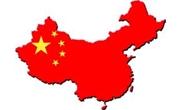Market Data

May 1, 2014
AISI Comments on China as a Non-Market Economy
Written by Brett Linton
The American Iron and Steel Institute (AISI) commented on a report released earlier today by the Center for American Progress (CAP) regarding China’s Economic Reform. The AISI stated that CAP’s article indicates that economic reforms announced by Chinese leadership last fall will do nothing to mitigate China’s state-ownership and control over key industrial sectors, including steel.
Thomas J. Gibson, president and CEO of the AISI, stated that the Chinese government’s control of key aspects in the Chinese economy is leading to “significant economic distortions, including a massive build-up in excess steelmaking capacity in China.” Gibson continued to say that, “the state-run economy prevents normal market forces from operating in China and produces harmful effects in global markets. Private companies in the United States and elsewhere can’t compete with foreign governments, and the impact has been seen across the steel industry. Despite the rhetoric from the Chinese government last fall, today’s report reaffirms that these announcements won’t move the needle toward a market economy in China.”
The report from the Washington, D.C. think tank today examined the announced economic reforms underway in China, which were proposed by Chinese leadership as part of the so-called “Third Plenum” meeting of the Communist Party last fall. The detailed analysis indicates that the basic economic institutions in China remain state-controlled and will continue to operate on non-market principles, even if the Third Plenum reforms are implemented as announced. “China’s economy will still operate with broad government involvement in the ownership and control of key industrial sectors and corporate finance, with the Communist Party and the Chinese state retaining authority over key economic decisions,” Gibson said. “We hope policymakers and others who can help change this course will take notice of this important research and analysis released today.”
A section of the CAP report is reprinted below for your convenience:
“Even with New Reform Efforts, The State, Not Market, Still Poised to Drive China’s Economy
Last year’s announcements of a new Shanghai Pilot Free Trade Zone and a new economic governing agenda at the Communist Party’s Third Plenum under President Xi Jinping and Premier Li Keqiang offered hope of a new direction in China’s economic reform. This Third Plenum decision document promised to clean up the problems widely associated with ongoing state involvement in and control over China’s economy, including inefficient subsidies to state-owned enterprises, or SOEs; control and ownership of the financial system; price interventions that skew incentives and distort not just China’s markets but global markets as well; and the rampant and related problems of environmental degradation and corruption.
Many in China and around the world applauded the Chinese leadership’s overture to reform, which China proclaimed would establish a “decisive role for the market” in its economy. The positive response came even as China simultaneously pledged to uphold and strengthen the economic role of the state in the Third Plenum decision, as the reform nonetheless signaled a landmark shift in the direction of China’s fundamental economic institutions away from what the world has seen up to this point.
But while China watchers focus on the optimistic vision imbued in the reform agenda, more substantive questions remain: How will China’s reforms affect its nonmarket economic structure and, in turn, the commercial landscape for the United States and the rest of the global economic community? Can China’s leaders overcome the political and structural barriers that stand in reform’s way?”
The full press release can be found here.







